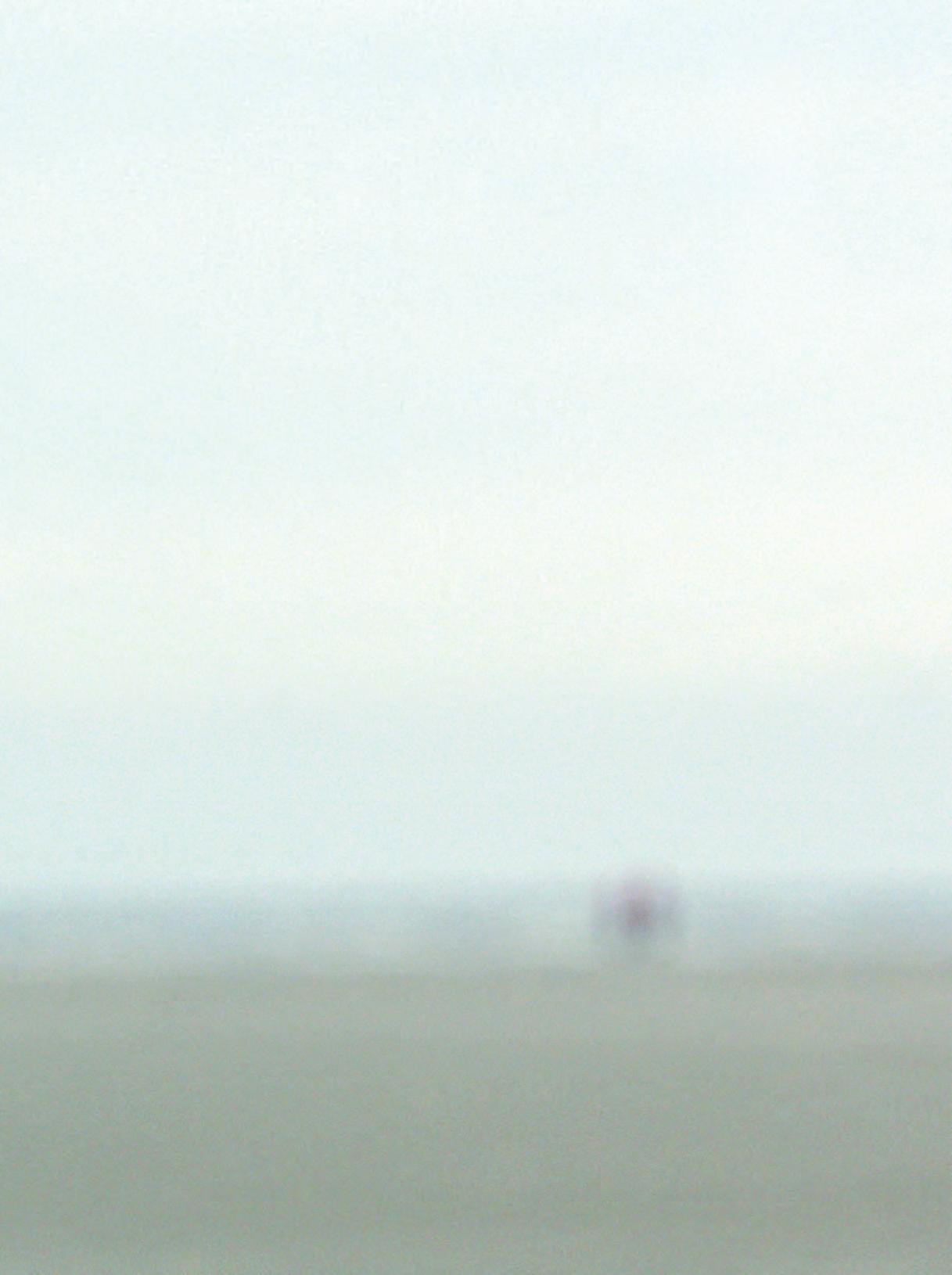
8 minute read
Revista Fora de Casa - junho 2014 - O POVO
About fears and courage
In a physical and psychological journey, two brothers discover how far their fears may lead them. About loving and about leaving, about risking and regretting, the movie Praia do Futuro hits theaters with the unique aesthetics of director from Ceará Karim Aïnouz. In an interview, Aïnouz and the actor Wagner Moura speak about the film
Advertisement
Aquaman and Speed Racer, Donato and Ayrton, Wagner Moura and Jesuita Barbosa. In a film permeated by forces and subtleties, the characters build the plot with two kinds of courage, two types of fear and two types of searching. Praia do Futuro hit theaters on May 15, with direction and script by Karim Aïnouz.
The director and screenwriter from Ceará, Brazil, is already established in film scene with movies like O Céu de Suely (Love for sale: Suely in the Sky) (2006), O Abismo Prateado (The Abyss) (2011) and Abril Despedaçado (Behind the Sun) (2001). And the actor from Bahia Wagner Moura, who plays the main character, Donato, emerges with one of the main actors of the new generation of Brazilian cinema, Jesuíta Barbosa.
Brazil-Germany
When the lifeguard Donato (Wagner Moura) falls for German bike rider Konrad (Clemens Schick), whom he rescued from drowning in Praia do Futuro , he leaves for Germany, leaving behind his younger brother, Ayrton (Jesuíta Barbosa), and his family. Eight years later, Ayrton comes to Berlin in search of his brother.
In a typical treatment of Karim's work, Fortaleza and Berlin exceeded the scenario function and are characters of the movie. "Even the name of the movie is the name of a place. I think the film is very much about the relationship of the characters with the place they live in. The impact of context on the characters is very important, the impact of space, the impact of the culture of the place where the characters are", said the director, in an interview with Fora de Casa magazine.
As the director points out, the topic travels, addressed in the film, is developed in a dialogue between the literal act of traveling and the journey within yourself. Karim, who has lived in cities like New York, London, São Paulo and, more recently, Berlin, pointed out the tolerance as one of the major learning from the experience. "You live in another city where there are people from all over the world, you learn to live with a lot of differences," he explained.
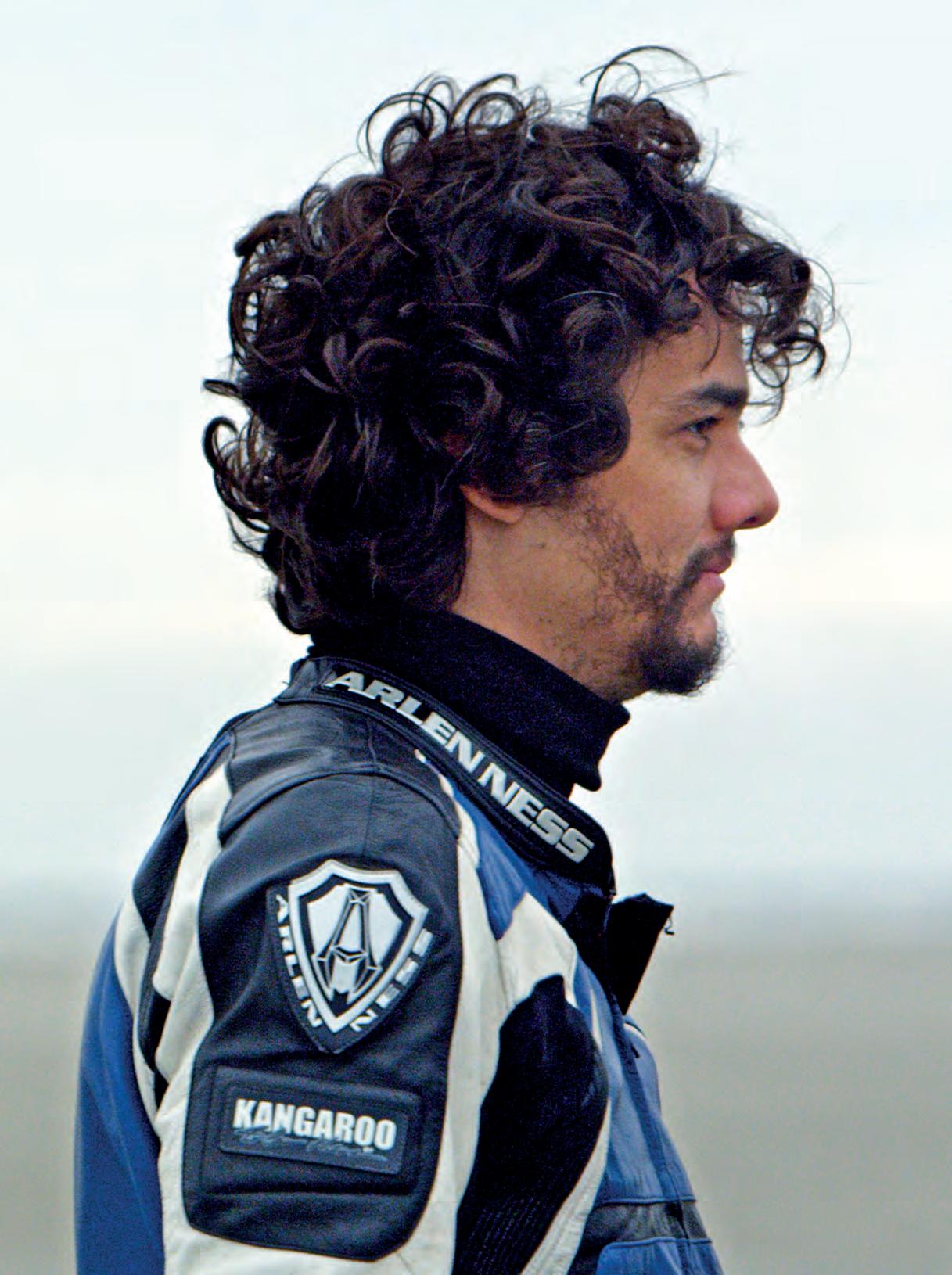
Wagner Moura as Nonato
The director also said that what he learned about the opportunity to live in cosmopolitan cities is reflected in his film construction. "They really are cities that are worlds in themselves, there are people from all over the world. I feel very privileged to have this experience in my life", he told.
Soundtracks, actors and projects
"It was a pleasure to work with all actors in the film". With this statement, Karim Aïnouz summarizes the professional relationship with the cast from Bahia, Pernambuco and German. According to the director, the actors collaborated in the design of the film in a very beautiful way. "They are not only actors you tell what to do, they speak about the characters, talk about the script. So it was a great pleasure. It was very inspiring", he praises.
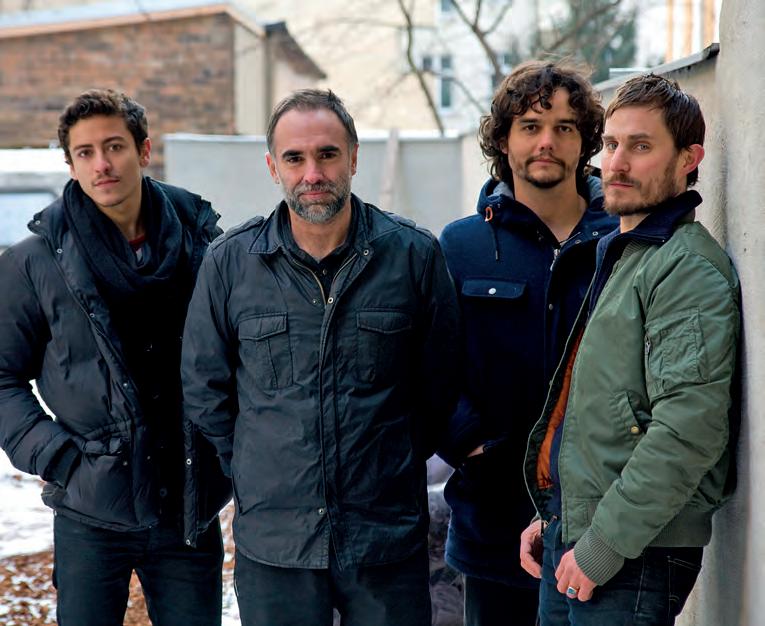
The actors Jesuíta Barbosa, Wagner Moura e Clemens Schick and the director Karim Aïnouz
In his first film using soundtrack, the director described the process of creation as very difficult. "This is the first film that I can say that has a real soundtrack. It took a long time. Either it works or it does not work, or it is emotional or it is not emotional. So it was a very intuitive work with the composer."
On projects and countries that are in Karim Aïnouz’s next plans, the director told he does not know, but said a "Japan, maybe" and cited some possibilities. "There is a project with Wagner (Moura) I really want to do, about a protestant pastor. And there is a film about a Spanish painter, Diego Velásquez", he anticipated.
Talent from Pernambuco / Ceará
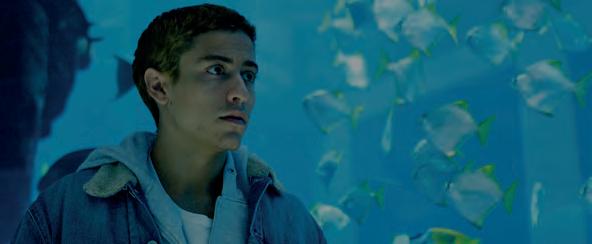
Jesuíta Barbosa as Ayrton
Last year, at the Gramado Film Festival, the actor Wagner Moura joked saying he feels very angry about very new talented people. About Jesuíta Barbosa, the actor from Bahia completed, in a joke: "About this one I'm not angry, I want to kill him, with a stick in the head."
From Salgueiro, Pernambuco, and long-term resident of Fortaleza, Ceará, Jesuíta continues to stand out. In 2013, he was already considered one of the great promises of Brazilian cinema. Ayrton, from Praia do Futuro, had his performance acclaimed by the critics, in movies like Serra Pelada (2013), by Heitor Dhalia; and Tatuagem (2013), by Hilton Lacerda. For his work in this last one, Barbosa won Trophy Redentor (Redeemer) as Best Actor, in Rio 2013 Festival.
Interview with Wagner Moura
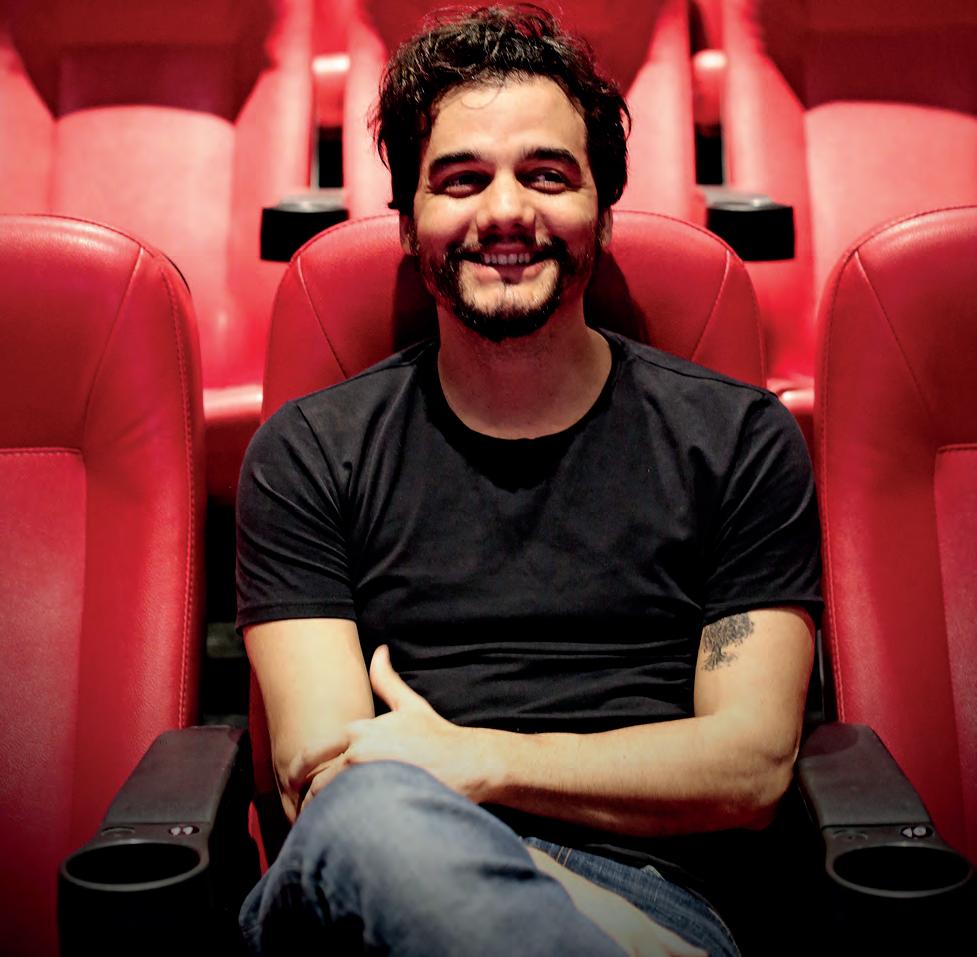
He is known for Brazilians soup operas, but also for movies like Tropa de Elite, VIPs and Deus é brasileiro (God is Brazilian). You can also remember him as the actor from the movie Ó Paí, Ó (2007), or the international actor in Elysium (2013). Or maybe the father in A Busca (Father's Chair) (2013), or Donato in Praia do Futuro (2014). Wagner Moura is multiple, but he turns out unique.
In an exclusive interview with Fora de Casa Magazine, Wagner Moura spoke a bit about working with the writer-director Karim Aïnouz and commented on the preparation for the film and the construction of character Donato.
Moura already has new projects, such as the production where he will live one of the actors who gave life to the clown Bozo; and the film about Mariguella, former congressman, poet and guerrilla from Bahia, in which Moura will debut as a director.
FORA DE CASA -– How was the lifeguard workshop? How was that experience here in Ceará?Wagner Moura
Wagner Moura - I spent a long time here, working with Major Barreto and others lifeguards from Praia do Futuro, making a very heavy training. The Praia do Futuro is a very beautiful beach, but it is also a very dangerous beach, the lifeguards there are very good, they are very prepared. They wanted to put me in the right pace, to put me a little on the skin of the character. I had to have a relationship with the sea.
FC - Who is Donato for you?
Wagner - Oh, Donato is a very lovely character, a man who is looking for himself, he is seeking, he is a man of few words, he has a lot of feelings. He taught me, in my work, that we do not have to always know exactly what the character is thinking, because, as people in normal life, the character sometimes are not sure why he does things. With it, I got a very complex level of building a character.
FC - How was working with Karim?
Wagner - Karim is an artist whom I chase for a while already. I really wanted to work with him. He is a director who handles the complexity of the characters perfectly. An actor who works with Karim is a very happy actor because nothing is simple, everything is complex and, at the same time, he is a director who has very visual care, he has a very refined aesthetic sense. It is a very difficult thing to combine these two features. You will see that the film is very beautiful and, at the same time, is very mental, very strong.
FC - What do you think the film brings to the scenario of Brazilian cinema?
Wagner - I think it is one more film made by an important Brazilian director. Karim is a director that always excelled for the beauty, through experimentation, depth with which he approaches his characters. He is already a director, we can say, known in Brazil, who inspires many people. The work he does here in the Dragão do Mar (Center of Arts and Culture), forming writers, new directors, scripts laboratory, is proof of the importance that he has not only as a director, but as a guy who fosters. Karim is one of the most important directors of Brazil.

